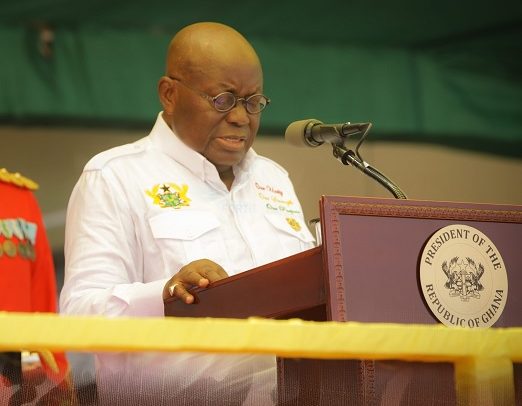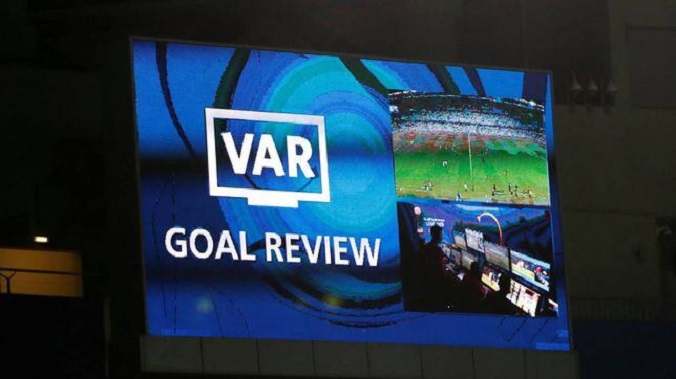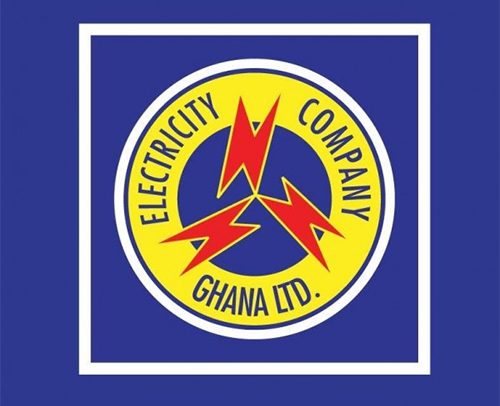
Hello and thank you for joining this live digital conversation from wherever you are.
Technology has proven to be more than a good friend, actually very dependable, in these COVID-19 times. For you my friends and followers on Social Media, I am happy to continue to avail myself and interact with you.
At the end of this evening’s session, I will take a few questions, as I usually do, on the issues that I will be raising.
My brothers and sisters, one of our best and most enduring qualities we have as Ghanaians is that, notwithstanding the nature or extent of adversity we encounter, we, as a people, have always been positive in our philosophical outlook.
It is this strength of character that in many ways have determined our approach to life.
This is why I do not have any doubt that with the Almighty God on our side, with the specialist knowledge and professionalism of our medical practitioners, with the ever present creativity and industry of our people, and with every single one of our people united towards a common purpose of conquering the coronavirus pandemic, we shall overcome this current existential threat we face.
I pray for God’s overwhelming healing power for the sick, including those who are asymptomatic. I console bereaved families and commend our gallant health workers and our men and women in uniform for their sacrifices towards our common quest to heal our land of COVID-19.
When we closed the chapter on the year 2019 and welcomed 2020 with the usual fanfare and jubilation, we could not have predicted that so early into the year, almost every aspect of our life would be so profoundly affected by a global pandemic that has brought countries on every continent to their knees. But the signs were on the wall.
Our schools are closed, our churches and mosques shut down, our markets closed or heavily regulated. Our movements have been curtailed and anxiety has become a palpable daily reality.
Guided by our very recent experience in our subregion, the effect of this virus in many ways is like the Ebola virus that ravaged our West African neighbours- Liberia, Sierra Leone and Guinea- a few years ago.
I recall at the time, there was a clear thought in mind when I stood before the United Nations and also Westminster to galvanise support for our neighbours.
I stated that Ebola was a virus that compromised our impulse of touch and closeness to comfort our loved ones who were infected.
I mentioned that Ebola was a disease of isolation; and worse, it left many survivors ostracised and stigmatised.
Care and affection are basic human traits. And when a virulent disease such as Ebola makes it impossible to show care and affection to our relatives, friends and loved ones, not even to get close or hug them, it is a most strange and difficult proposition.
Sadly, these unfortunate developments are playing out before our very eyes, with the current coronavirus disease.
This is exactly why when our brothers in Nigeria, in February, became the first country in West Africa to report a case of the coronavirus, I immediately called for aggressive preventive measures to be put in place so that the disease does not spread to Ghana.
We all hoped and prayed but it was not to be. But now that it is here, we owe it to the Ghanaian people to ensure that every attention, decision, every human and material resource, should be aimed solely at stopping the spread of the virus.
We must manage the cases to ensure speedy recovery and continue to have and build a secure and united country at the end of it all. In all these, my thoughts have also been on the state of our country after the pandemic.
How different will our world, our country Ghana, look from the world we have known before?
No country, nobody, will go back to business as usual. In the coming days, I look forward to hosting further digital conversations on how we can rebuild our country, Ghana, and prepare it for the changes that are to come.
I will work with all of you to prepare our country Ghana for the new world, which will emerge after this pandemic.
For now, however, my brothers and sisters, I trust that you are doing well? You are staying safe and you are taking the necessary steps to prevent yourselves and your families from getting infected with this deadly virus we are battling with.
Staying safe- no matter what- is what we must all strive to do, because as you may have also heard, in the model government is working with, the projection is that up to three million Ghanaians may be infected by the virus and a significant number will require hospitalization or may even die from the virus.
In his last address to the country, President Nana Akufo-Addo lifted the partial lockdown imposed on Greater Accra, Greater Kumasi and their environs, and Kasoa, at a time the country was recording increasingly higher infections.
It was therefore not surprising that many Ghanaians including public health experts were puzzled about the considerations underlying the President’s decision.
The number of infections are not only rising steeply but there is also clearly a horizontal- community- spread of the virus. The majority of regions have reported cases, and the bulk of the positive cases are of people who have no history of foreign travel.
One wonders whether consideration was given to the huge backlog of tests that had not been cleared, and the many possible cases roaming in our communities that have not yet been tested due to lack of mass testing.
Using the examples of countries that are seeing a decline in their case numbers, the science shows that, public awareness on prevention protocols, accurate data, widespread testing, effective contact tracing, isolation, treatment and care are the critical factors for success in overcoming the COVID-19.
Transparent and accurate data is critical if we are to achieve a better and deeper appreciation of the trajectory of this contagious disease in Ghana.
Unfortunately, many health professionals have begun to question the credibility of the data and models being put out by the National COVID-19 Team.
While it is the prerogative of the President to take the decisions that ensure our safety and protection, it is my hope that his decisions are guided by a genuine concern for the health and safety of the people of Ghana, and also guided by Science, not any political or parochial considerations.
It is unfortunate that a high-ranking member of the President’s party has suggested in recent days that the Electoral Commission should, and will go ahead with the compilation of new voters register as soon as next month.
At a time when doubts remain about the scale of the COVID-19 threat, and when social distancing has become our main defence, this suggestion is deeply irresponsible.
Outbursts like this create doubt in the minds of the public if there are no political underpinnings to the President’s decision.
At this stage, we can only hope that consideration was given to the fact that, the effect of initiatives such as the local manufacture of Personal Protective Equipment (PPE) are yet to be felt in our health system.
I must say, I am deeply concerned about the health and safety of our health workers considering that there are still loud complaints from many health facilities about the lack of basic protective gear.
We need to protect our hardworking health workers. Not a day passes without emails, phone calls, Facebook, Twitter, Instagram and WhatsApp messages from nurses and other medical staff from facilities across the country reaching out to my office and pleading for protective gear.
Right from the start of this pandemic, public education and awareness has been poor. Messages must be crafted in all local languages and aired extensively on all our media of mass communication.
Scenes in our markets and public places suggest that the President’s exhortation for self-discipline has largely not been heeded.
Now that the lockdown has been lifted and the virus is mobile again, we must heed to the call to always wear face masks or face coverings in all public places.
Government should speed up the initiative of manufacturing locally made masks, which can be washed, pressed and reused again. These should be handed out free of charge to the public. Strong public education on the safe use of masks must accompany this initiative.
One gets the sense that perhaps, because of the current low mortality in the cases we have confirmed so far, the President might be seeking to rely on herd immunity as a strategy to fight COVID-19. This is dangerous!
We must remember there are reports of reinfections occurring in some cases elsewhere. Also, prolonged immunity to the virus has not yet been proven at this stage.
The example of the UK at the initial stages of the pandemic is a stark reminder of the dangers of such a strategy. Eventually, Prime Minister Boris Johnson nearly became a casualty of the virus.
While it is true that the rate of hospitalisation among those testing positive in Ghana is lower than in the UK, it is also true that we have a weaker, less efficient health system than the UK.
The burden of the Coronavirus disease could potentially be very heavy. COVID-19 has overwhelmed the health systems of most advanced countries and can do same in Ghana.
The toll on our healthcare workers could be devastating. You can buy ventilators and other medical items on the market, but you cannot go to the market and buy skilled doctors and nurses and other medical staff.
As it is, we are relying on hope. Hope is good, but science helps you to hope better.
It is important to note that Government’s humanitarian intervention to alleviate the unintended but predictable consequences of the lockdown were an abysmal failure.
The distribution of food was chaotic and disorderly and in some cases partisan. It flouted all protocols of social distancing and prevention of spread of the virus.
Definitely no careful planning went into the implementation of this initiative as is characteristic of this administration. My suggestion to involve Assembly members, traditional rulers, religious leaders and CSOs were ignored.
As the President clearly admitted, this was one of the reasons for the lifting of the lockdown.
Many Ghanaians were faced with two choices. Either to stay at home and die of hunger, or come out and take their chance against the deadly virus. Faced with this choice, they opted for the latter.
I, therefore, can understand and empathise with the spots of jubilation that greeted the announcement.
With a budget in excess of GH¢1.2 billion, we could have handled this mitigation effort much better than we did.
Examples from some of our fellow African countries including Togo, Cote D’Ivoire and Rwanda demonstrate how an extended period of lockdown, can be supported by a well-coordinated, enhanced and effective social mitigation programme.
My office has been flooded with correspondence from many working-class people, especially in the private sector who have not received their February and/or March salaries, and are having a difficult time feeding, and taking care of their families.
The lockdown may have been lifted, but many businesses are still down, and suffering. Employees are suffering too, just as the many players in the informal sector.
It makes me wonder why our SSNIT has not been responsive in this time of need of many contributors. Social Security contributions are essentially an insurance scheme made not just for pensions in old age before we die.
They are also meant to help contributors in times of adversity such as this. Remember that not all will come out and queue for food. Not all will come out of their homes to receive the food boxes we hand over.
But as has been done in other countries like St. Lucia, I think a token payment to all contributors of a certain token sum over three months would have afforded many the assurance of feeding their families during these abnormal times.
While we wait for a clearer understanding of the factors underpinning the decision of the President to relax efforts to manage the spread of the virus, I urge all Ghanaians to continue to be responsible and not to assume that the country is out of the woods yet because of the removal of the lockdown .
I want to strongly encourage all my fellow citizens particularly the aged and those with underlying medical conditions to continue to remain home.
The young are also advised to exercise precaution, because in the reality of the COVID-19 Russian Roulette, nobody knows who will live, and who will die.
If you please have nothing essential or urgent to do outside, please continue to stay home.
Avoid shaking hands or joining large gatherings. Let us regularly wash our hands with soap and under running water, or resort to the use of alcohol-based hand sanitisers where possible.
Continue practicing social distancing or stay at least one metre away from anybody you are with or talking to when you step out of the house. And, please wear a mask to protect yourself and others from infection.
On this note, I commend and congratulate all who are working and producing masks locally, including the Medical Women Association of Ghana – Dr. Dzifa Kuwornoo and her colleagues – who are also producing masks to support the fight against COVID-19.
I still urge those who can afford to show compassion and share whatever you have with the less fortunate, especially the vulnerable including people with disability.
Let’s all join hands in demanding accountability and transparency from Government in the management of the COVID-19 funds.
And I am passionately appealing to Government to ensure a timely release of funds to the institutions, health and non-health, so they can discharge their duties appropriately and according to plan.
I wish to also repeat my call for Government to ensure a reduction in the cost of internet because students and pupils need internet to study from home.
They have been home for over a month and some students are really struggling to cope with the cost implications of online lectures.
In similar vein let me also encourage the need to allow for flexibility at work places in order that people can work from home where and when necessary.
Issues have been raised about discrepancies in data on COVID-19 put out by Government.
This has been led by the renowned Ghanaian Pathologist and former Director General of the Ghana Health Service, Professor Agyeman Badu Akosa.
I urge Government to adopt the attitude of assurance and reassurance while explaining the sources and causes of the data discrepancies in the data because we need to build trust, transparency and confidence in the process.
It does not help our collective fight against the virus when some overzealous appointees resort to insulting persons who question the information being put out by Government.
While thinking and working locally we must also keep an eye on treatment and/or vaccines development. This will ensure affordability and availability of drugs and vaccines when they become available.
I called a few weeks ago for a virtual ECOWAS summit in order to coordinate our response to the pandemic in respect of border restrictions and subregion wide COVID-19 response measures.
I am heartened to here that such a meeting is planned in order to better coordinate our fight against the virus. This is necessary in order to avoid unilateralism in what is a collective struggle.
For instance, it is reported that Ghana’s unilateral decision to lift the lockdown has put extreme pressure on our neighbours to do likewise, even though we are all not sure whether Ghana’s decision is the best course of action to take at this time.
We are dealing with a new disease and are not yet sure how it will behave going forward.
Meanwhile let me once again underscore the need for testing, testing and testing of Ghanaians for COVID-19.
Now that we have lifted the lockdown, Government must truly expand our testing capacity by fast tracking Regional Testing Centres to remove the long delays before results reach hospitals and patients.
Such delays not only cause anxiety among patients and health workers but also lead to inadvertent spread of the infection.
In conclusion, I would like to reiterate that as a nation, for us to succeed, we need to see from the government that leads us, a demonstration of trust and respect for all, no matter which people are involved, or where they are coming from.
We must be open to constructive criticism and be receptive to pragmatic suggestions from the experts because these are critical ingredients that engender trust- and a collective will to support the battle we are engaged in with this pandemic.
It is not too late for us to unite, truly unite, be transparent and accountable to the people.
Fellow Ghanaians, we are not in normal times. We must all put our shoulders to the wheel with patriotic zeal devoid of partisanship and parochial interest and help with all our hearts and might to fight COVID-19 aggressively and decisively.
Together, We Will Win.
Thank you, and I will proceed to read out some questions that you’ve posted to my Facebook, YouTube and Twitter handles.
Read Full Story





















Facebook
Twitter
Pinterest
Instagram
Google+
YouTube
LinkedIn
RSS